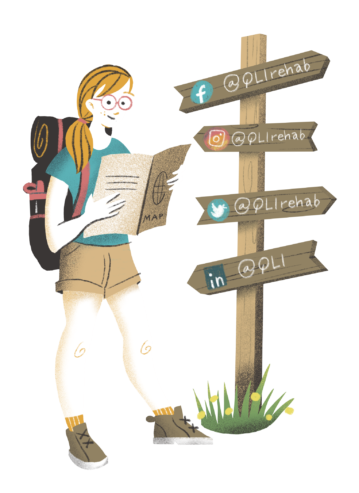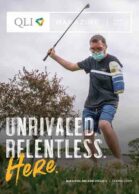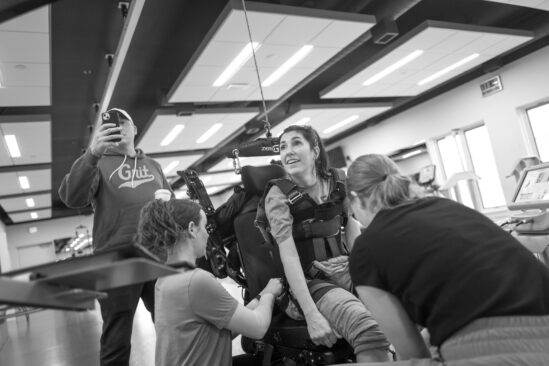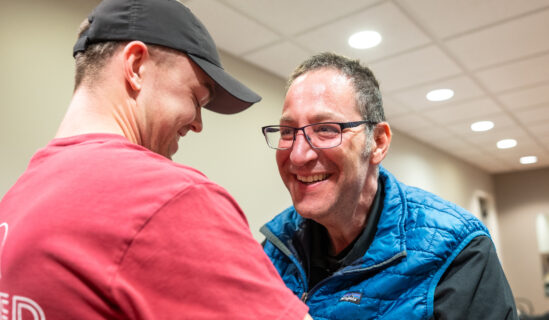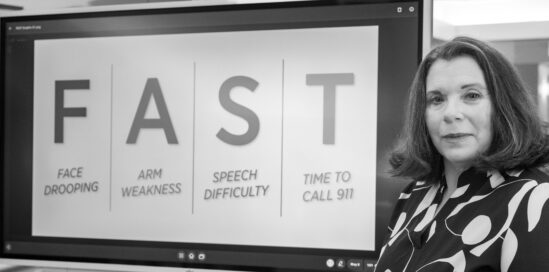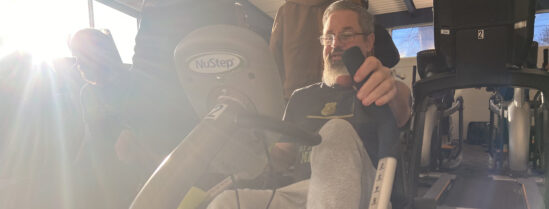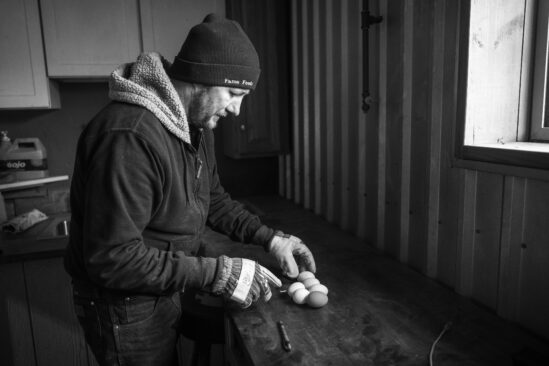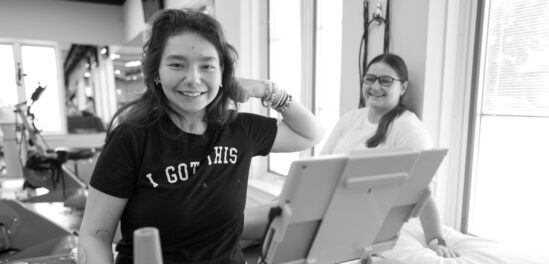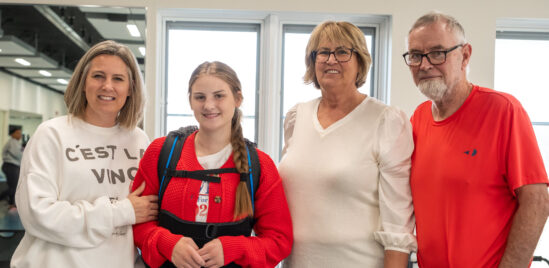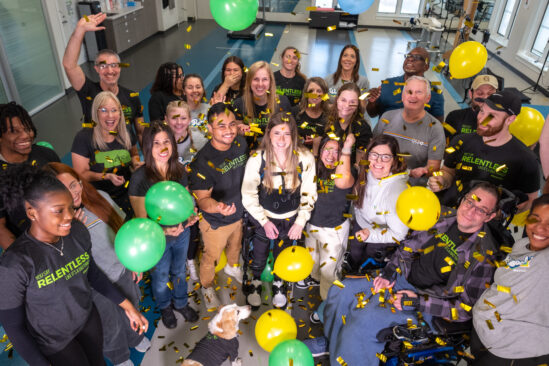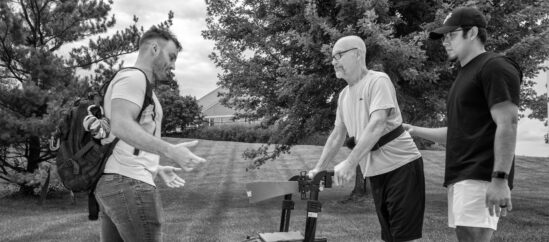He’s got a story to tell, and he knows it. For Christian “Rico” Martinez, the future is now as clear as it ever has been—he will use his story to impact others, both as a word of warning and wisdom, and one of inspiration.
__
Rico readily admits that the path his life was on years ago was not a positive one—the individuals he ran with, the things he saw and did were almost ingredients for danger, for getting lost entirely to his family, to his life purpose. Everybody has a story—Rico knew it then, and it’s all the clearer now.
Even then, looking back on it, he realized there was a desire to share, to go in-depth into a story, and to take the form of rap. These tracks were fully formed, and the bars were pared with samples and beats 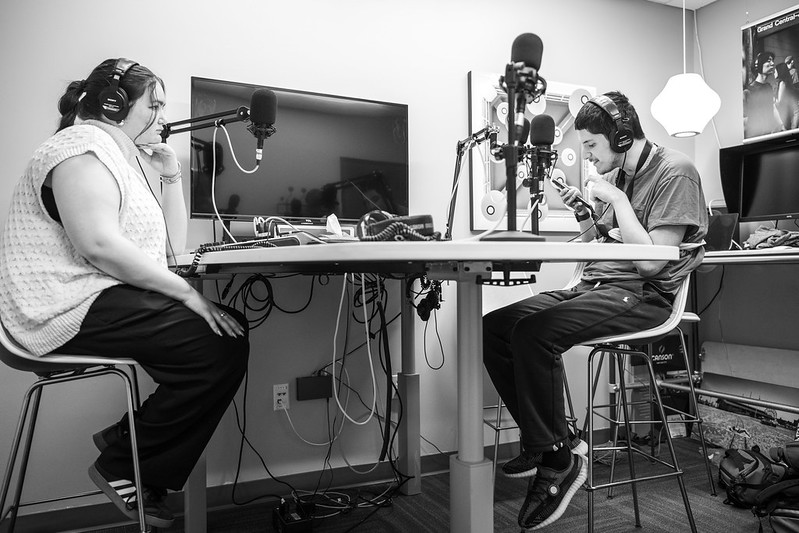 that truly hit with a punch—with one in particular called “Lifestyle.” There’s a feeling of premonition as the beats go, the words—if I don’t change my ways, I’m gonna die. When playing this, discussing the course his life took with life path specialist Emma Shaw by his side, a solemn look comes over his face. This does not linger though, replaced by one of accountability. Rico owns what happened to him, just as he owns what will happen.
that truly hit with a punch—with one in particular called “Lifestyle.” There’s a feeling of premonition as the beats go, the words—if I don’t change my ways, I’m gonna die. When playing this, discussing the course his life took with life path specialist Emma Shaw by his side, a solemn look comes over his face. This does not linger though, replaced by one of accountability. Rico owns what happened to him, just as he owns what will happen.
I can’t help it, can’t stop taking risks until I’m at the top—and a moment later—everybody got their own story. He presses pause on the track and is silent, with his eyes half-closed.
They open. “I meant it, too.”
__
His traumatic brain injury was the result of a deal gone very bad, meeting with individuals to purchase a vehicle. Rico realized it had been stolen, didn’t want to go through with the sale—and he and a friend were shot multiple times. Miraculously, both survived but with significant injuries necessitating a long and arduous rehabilitation process.
Rico went through a rehabilitation track in Texas, moving around to a couple of different places, before he was discharged back home with his family. But something, even then, didn’t sit right with him. The potential within was clear—he knew he could get better, and he felt it was something he was called for. “God gave me a second chance,” Rico muses. “He saw something in me.” So, it was a fortuitous happening on Instagram when Rico noticed a video with former client Christian Arteaga. Something within connected, so he did the research. Rico got in contact with the QLI admissions team. Eventually, with insurance approval on board, Rico arrived at QLI in January 2025.
“Rico liked things a specific way,” occupational therapist Ellie Messerschmidt said. “He was adamant—‘I’m going to be independent,’ but that was him saying that as a cue to let me know that he wanted to do as much as he possibly could, while also being pretty open to what he needed help with.” Independence for Rico meant being able to do things that were meaningful to him—chiefly to be an advocate for others while also getting back to mastering many of the physical components of recovery. The team noticed that distraction could do little to hinder his progress, in addition to Rico being under the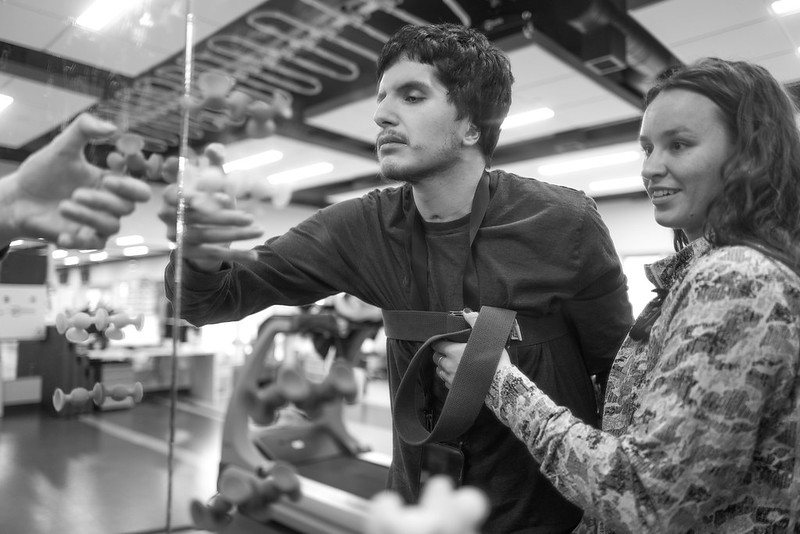 impression that he could do something entirely on his own, when he in fact could not.
impression that he could do something entirely on his own, when he in fact could not.
Even better, working through distraction formed part of an exercise Rico regularly practiced with Ellie—focusing on balance and sitting up straight on the edge of a bed, with the goal being to bounce a balloon back and forth—with eyes tracking the constant movement, and needing to shout out different kinds of objects, animals or cars, with each hit of the balloon, adding a mental complexity to the game. With his daily physical therapy sessions, Rico slowly but surely has built back strength, walking supported, yet with a better ability to firmly plant his feet with each step.
Music, specifically expressing himself through rapping, was a great rehabilitative tool. Speech-language pathologist Kaitie Correll started with established swallow and breathing exercises and techniques. Armed with a breather device and companion phone app, Rico was prompted multiple times per day to do a short brief exercise, breathing in and out deeply to gain greater breath support. And, to stimulate vocal strength, Kaitie introduced a gamut of vocal exercises—glides, moving slowly up and down a musical scale, lip trills, vocal phonations—all of which could aim to serve his purpose of telling his life story and experience to others.
“Once I fully get my voice back,” says Rico. “I want to be a motivational speaker—and speak out for the people who were in the same situation I was. I want to inspire people. Before this, I couldn’t eat, I couldn’t speak, I couldn’t walk. I feel like myself again.”
The passion Rico has had to tell his story has transcended, with team member guidance, onto platforms such as TikTok. More and more people view the stories and the videos, which have, in turn, with the 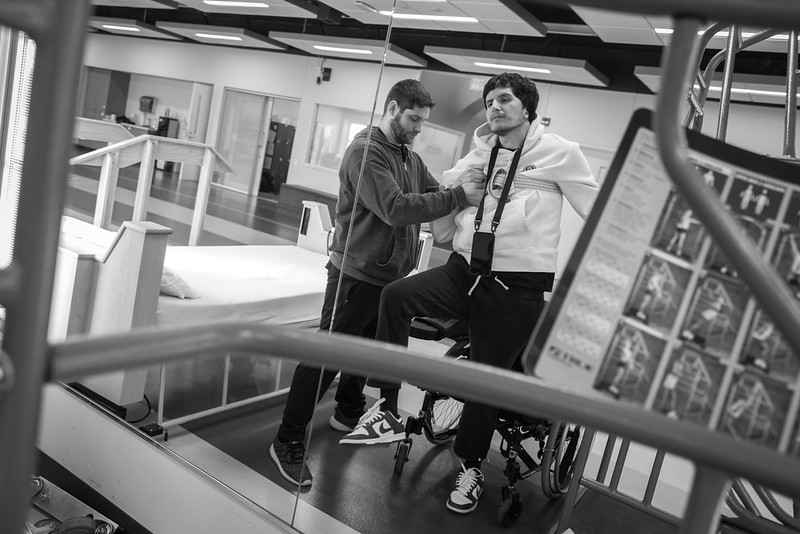 growing support, fueled his motivation. Through clips shared, he provides a full view of the course of his recovery—putting side-by-side shots of him from a couple of years ago and one from QLI. He is starting to experience a creative flourish as well, working with individuals such as life path assistant Emma Shaw in building lyrics and beginning to put new tracks together.
growing support, fueled his motivation. Through clips shared, he provides a full view of the course of his recovery—putting side-by-side shots of him from a couple of years ago and one from QLI. He is starting to experience a creative flourish as well, working with individuals such as life path assistant Emma Shaw in building lyrics and beginning to put new tracks together.
This time, however, “the message will change,” Rico notes. “Way more positive than the negative things that used to be the focus of the music.” And another message, one that will now be there forever. “If you’re making the mistakes I was—be somebody.”


